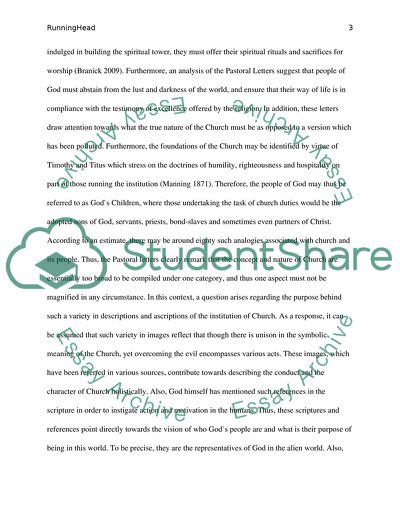Cite this document
(“Foundational Paradigm for Ministry Essay Example | Topics and Well Written Essays - 2500 words - 1”, n.d.)
Foundational Paradigm for Ministry Essay Example | Topics and Well Written Essays - 2500 words - 1. Retrieved from https://studentshare.org/religion-and-theology/1657374-foundational-paradigm-for-ministry
Foundational Paradigm for Ministry Essay Example | Topics and Well Written Essays - 2500 words - 1. Retrieved from https://studentshare.org/religion-and-theology/1657374-foundational-paradigm-for-ministry
(Foundational Paradigm for Ministry Essay Example | Topics and Well Written Essays - 2500 Words - 1)
Foundational Paradigm for Ministry Essay Example | Topics and Well Written Essays - 2500 Words - 1. https://studentshare.org/religion-and-theology/1657374-foundational-paradigm-for-ministry.
Foundational Paradigm for Ministry Essay Example | Topics and Well Written Essays - 2500 Words - 1. https://studentshare.org/religion-and-theology/1657374-foundational-paradigm-for-ministry.
“Foundational Paradigm for Ministry Essay Example | Topics and Well Written Essays - 2500 Words - 1”, n.d. https://studentshare.org/religion-and-theology/1657374-foundational-paradigm-for-ministry.


